Online Prescription
Plaque Psoriasis Treatment
Ireland’s Award-Winning Online Doctor Service


Psoriasis Treatments That We Can Provide
We issue prescriptions for generic name medicines to ensure maximum availability of treatments. Please check your dispensed prescription before leaving the pharmacy as no changes can be made after that point.
- Steroid Scalp Applications
- Steroid Gel (Ointment And Foam)
Included:
- You will need to upload 3 clear pictures of the affected areas.
- This service is suitable for you if you:
- Have been diagnosed with plaque psoriasis by a healthcare professional.
- Have mild-moderate plaque psoriasis.
- Are having a flare of your usual symptoms.
- Can upload 3 clear pictures of the affected areas.
- Please be advised, as a written consultation service, our clinical criteria for issuing treatment is stricter than that which may be used during a face-to-face consultation.
Excluded:
- This service is not suitable for you if:
- We are not able to treat other types of psoriasis i.e. guttate, pustular, palmoplantar, erythrodermic or other skin conditions via this service.
- You are pregnant (or suspect you could be pregnant) or breastfeeding.
- More than 5% of your skin is affected by plaque psoriasis (5% is approximately the area covered by 5 of your hand prints).
- You need treatment for psoriasis on your face, genitals or skin folds (groin, armpits, under the breasts).
- You require treatment for nail changes associated with psoriasis.
- You are feeling generally unwell (including fever/high temperature).
- You are experiencing joint pain, swelling or stiffness.
- You have noticed unexplained weight loss (not planned, or no identifiable reason for this).
- You have had problems regulating your calcium level in the past (high levels or low levels).
- You have significant kidney or liver disease.
- You are currently using specialised treatments, such as immunosuppressants, oral retinoids, Biologics or phototherapy.
- You need treatment for a skin condition other than plaque psoriasis.
Important Medical Information
Who is this service suitable for?
This service is suitable for you if you:
- Have been diagnosed with plaque psoriasis by a healthcare professional.
- Have mild-moderate plaque psoriasis.
- Are having a flare of your usual symptoms.
- Can upload 3 clear pictures of the affected areas.
Please be advised, as a written consultation service, our clinical criteria for issuing treatment is stricter than that which may be used during a face-to-face consultation.
Who is this service not suitable for?
- You are under 18 years of age.
- You are pregnant (or suspect you could be pregnant) or breastfeeding.
- More than 5% of your skin is affected by plaque psoriasis (5% is approximately the area covered by 5 of your hand prints).
- You need treatment for psoriasis on your face, genitals or skin folds (groin, armpits, under the breasts).
- You require treatment for nail changes associated with psoriasis.
- You are feeling generally unwell (including fever/high temperature).
- You are experiencing joint pain, swelling or stiffness.
- You have noticed unexplained weight loss (not planned, or no identifiable reason for this).
- You have had problems regulating your calcium level in the past (high levels or low levels).
- You have significant kidney or liver disease.
ⓘ
Have you ever been told that your kidneys or liver are not functioning/working properly?
If you are not sure about this or you have any questions send us an email to info@webdoctor.ie
- You require a prescription for medications other than those listed in the medical questionnaire.
- You are currently using specialised treatments, such as immunosuppressants, oral retinoids, Biologics or phototherapy.
- You need treatment for a skin condition other than plaque psoriasis.
Please be aware, we are not able to treat other types of psoriasis i.e. guttate, pustular, palmoplantar or erythrodermic or other skin conditions via this service.
If you are unsure if this service is suitable for you, please send us an email and we can help to clarify.
What is psoriasis?
What causes psoriasis?
It often runs in families and environmental changes are likely to play a role. Psoriasis is not infectious or contagious.
Are there different types of psoriasis?
Other types of psoriasis include:
- Guttate psoriasis
- Pustular psoriasis
- Nail psoriasis
- Palmoplantar psoriasis
- Erythrodermic psoriasis
Please be aware that we are only able to provide treatments for chronic plaque psoriasis via this service.
Are there other conditions associated with psoriasis?
People with psoriasis are at increased risk of developing inflammation of their joints (psoriatic arthritis). The fingers and toes are most commonly affected, but it can affect any joint. You should seek medical review if you have a diagnosis of psoriasis and any joint pains or pain in your heels.
There is also an increased risk of cardiovascular disease (heart disease and stroke) if you have psoriasis and you should speak with a doctor to assess your individual risk factors so that these can be optimally managed if necessary.
Psychological difficulties are often associated with psoriasis and anxiety/depression can develop. Some people will feel embarrassed about the appearance of their skin and this can prevent them from taking part in certain activities and cause relationship problems. If this is affecting you, please speak to one of our doctors via an online video consultation or your local GP. There are things we can do to help.
Are there lifestyle changes I can make to help with psoriasis symptoms?
Some patients will have triggers that cause a flare of their symptoms. If identified, these should be avoided. Some of the most common triggers include:
- Smoking: Stopping smoking will help psoriasis and also decrease your risk of heart disease and stroke.
- Stress.
- Being overweight/obese.
- Excess alcohol consumption.
- Certain medications.
ⓘ
If you are concerned about this, please speak with a doctor to arrange a medication review.
- Sunlight (natural or artificial): Can help in some cases, but cause a flare in others.
- Trauma: Injury to the skin or excess scratching can trigger psoriasis.
- Some infections.
- Hormones: Psoriasis can be worse during puberty and menopause. Often improves during pregnancy but can flare postnatally
What treatment options are available for mild-moderate chronic plaque psoriasis?
There is no cure for psoriasis, but we can help you to manage this condition with the right treatment. The main aim of treatment is to clear the rash. Psoriasis treatments will vary from person to person and are guided by the location, severity, and frequency of the flares.
Emollients
These help to soften hard skin, remove scale, ease itch, and can make other treatments more effective. If you are using another treatment, apply the moisturiser first, allow it to dry for 30 minutes, and then apply the other treatment.
There are many moisturisers to choose from – the best one is the one that you like. Regardless of what psoriasis treatment you are using, it is essential that you keep your skin well moisturised by using liberal amounts of moisturiser regularly (3-4 times daily), even when your skin is in good condition.
Caution: When moisturisers dry on dressing, clothing, bedlinen or hair, they can catch fire very easily if they come into contact with a naked flame. It is essential that extra care is taken around naked flames (e.g. candles, cigarettes) when using skin care or hair care products. It is advisable to wash clothing and bed linen regularly if it has been in contact with moisturisers. Please note the moisturisers are not fire hazards when in their containers – it is only when they have dried out on these materials.
The most commonly used psoriasis treatments are:
- Emollients
- Vitamin D-based treatments
- Steroid creams/ointments
- Salicylates
Combinations of these treatments are often used. For further information on these, and other available treatments, visit BAD Patient Hub.
What treatments for chronic plaque psoriasis can we prescribe?
Through our online psoriasis treatment service, we can provide prescriptions for the following treatments:
Scalp Treatments
- Steroid scalp application
- Steroid & salicylate combination scalp application
- steroid.
Body Treatments
- Vitamin D ointment
- Vitamin D & steroid gel
- VItamin D & steroid foam
For additional information on these medicines, including potential side effects, please read the product information leaflets via the links above.
The prescriptions issued are for short-term use only (up to 4-weeks). It is important to use regular moisturisers (3-4 times daily) with these treatments for best results.
How do these psoriasis treatments work?
Vitamin D derivatives slow the rate of new skin cell production, reducing scaly and flaky skin. The most common side effects are localised and include burning, itching, and dryness.
Steroids reduce the skin inflammation associated with psoriasis. As the steroids in all of the products mentioned above are potent, they should be used short-term (1-4 weeks maximum); use them at the lowest dose for the shortest time possible to control your symptoms and reduce side effects.
Topical steroids have few side effects when used correctly. Long-term use can cause thinning of the skin, inflammation and a flare of symptoms when stopped. Your body can come to rely on these instead of producing its own natural steroids. If you are using steroid-containing psoriasis treatment on your skin, do NOT cover the affected areas with bandages, dressing or shower caps. This can increase the absorption of steroids into the body.
Salicylate softens and thins thick, scaly skin which allows the steroid treatment to penetrate more efficiently. Side effects include skin tingling/stinging, itching, and peeling. These are less common when combined with a steroid.
What is the difference between ointments and gels?
How long does it take for treatment to work?
You should start to see an improvement in your symptoms within 2 weeks of starting treatment. Treatment should not be used beyond 4 weeks without medical advice.
If you feel that things have not started to improve after 2 weeks or not settled after 4 weeks, please arrange an online video consultation with one of our GPs or an appointment with your local GP for further assessment.
You should continue to use the prescribed psoriasis treatment until the skin feels smooth (it may still look pink). At this stage you can stop your treatment and continue with frequent application of moisturisers.
Can I use this psoriasis treatment service if I am pregnant or breastfeeding?
If you are pregnant (or suspect you might be pregnant) or breastfeeding, we would advise that you arrange a face-to-face consultation to discuss your symptoms and appropriate treatments in more detail than this service is able to offer.
Hormonal changes can trigger improvement or deterioration in your symptoms and there are some treatments that can be prescribed if needed. However, as with all things during this time, the individual risks and benefits need to be considered, and you need to be an integral part of that decision-making process.
For further information about psoriasis, visit BAD Patient Hub.
How It Works
Requesting a prescription for psoriasis treatment with Webdoctor.ie couldn’t be easier. Simply complete our medical questionnaire from any device, at any time.

Step 1
Online Questionnaire

Step 2

Step 3
Webdoctor.ie
Customer Review
Why Choose Webdoctor.ie?

Expertise
All of our doctors are registered with the Irish Medical Council and provide convenient and confidential healthcare to our patients.
Confidential
Caring
Convenience
Value
Irish
Webdoctor.ie is an Irish-based healthcare provider that has carried out over 130,000 patient consultations.
Webdoctor.ie In The Media
As Ireland's leading online doctor service, Webdoctor.ie is regularly featured in the national media.
Want to know more about us?
Visit our media page